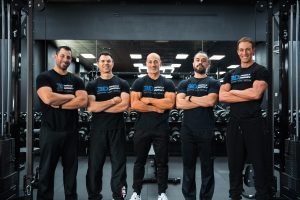Most online nutrition coaches do not have formal degrees in dietetics.
Most online trainers do not have formal degrees in exercise physiology.
Many industry leaders have no problem giving advice or suggestions when it comes to the kitchen and the gym, despite having no credentials to show for it. Their athletes look good, and that seems to be enough for us to assume their competence in the realms of nutrition and training.
But what about when it comes to the minds of their athletes?
Why is it that most bodybuilding coaches are so terrified to acknowledge their responsibilities for psychological support and mental wellbeing?
In the fitness industry, we like to call this “motivation”, or perhaps even “fitspiration”. We like to inspire, admire, and sometimes even downright prescribe lifestyle changes, as long as the terminology used to describe it is safe and upbeat.
But when you bring up words like “mental health” or “behavioral psychology”, many coaches are a bit afraid to be in charge of that. Even though most of them already are.
“Mental health” sounds heavy. “Emotional wellbeing” can seem out of our reach. “Body image”, “food relationships”, and “behavior management” are terms that lead many intelligent coaches to turn their cheek. They claim that dealing with these issues is “not in their scope of practice.”
But I disagree with that.
Speaking for most online bodybuilding coaches, we are not medical doctors. We are not physical therapists. We are not nurses, registered dietitians, or even certified strength and conditioning specialists. Yet we have no problem making decisions that affect people’s physical health. We jump at the responsibility of advising people on how to change their physiology. And in some cases (i.e., contest prep), we turn their body into something that is temporarily more dysfunctional than how we found it.
So why would we be so scared to attempt to help our athletes with their mental health as well?
To be clear, I am fully aware that we are not psychologists, therapists, or counselors either. Most of us do not have professional degrees in those fields, cannot diagnose or treat clinical disorders, and should never attempt to try.
However, I think our athletes would be better served by a community that acknowledges what we can do and what we are responsible for.
Perhaps for every 50 articles you read about what is physically optimal, could you throw in 3 or 5 about what is mentally optimal? Instead of following another jacked dude with a hot girlfriend and new clothing line, could you find a good sports psychology blog to keep up with? Could you study up on good communication and listening skills? Or perhaps educate yourself about the signs and symptoms of eating disorders? More than anything, could you get a better feel for what is normal behavior for a physique athlete, so that you know when it really is time for them to see a mental health professional?
We cannot be everything for our athletes. There are definitely times when we should concede to the professionals with advanced degrees in medicine, nutrition, and psychology. But to think that we as coaches are only working with a physique and not a mind is a disservice to our clients.
Think about how comfortable you are telling someone what to eat and how to train. What can you do to be half as confident in your abilities to assist someone with their mentality, motivations, struggles, and behaviors as well?

Great article! Every coach should atleast try to implement some psycology in his approach!
Thanks Kristiyan! I’m so happy you agree! 🙂 -AV
Great post! By the way, does anybody know good blogs, research, channels or podcast with good content about sports psychology or practical lifestyle tactics? Those are great tools for coaches to use with clients. Thanks!
Thanks so much! I don’t know too many ongoing blogs, but I do know of a few good people and books that have helped me as a coach.
Book titles –
The Champions Mind (Afremow)
Peak (Ericsson)
Grit (Duckworth)
Mindwise (Epley)
The Willpower Instinct (McGonigal)
The Score Takes Care of Itself (Walsh)
People –
Justin Su’a
Brett Bartholomew
Michael Gervais
I’m sure there are a ton more, but those are a few that popped into my head while typing lolll
Thanks again for reading and leaving a comment! I hope those resources are useful 🙂